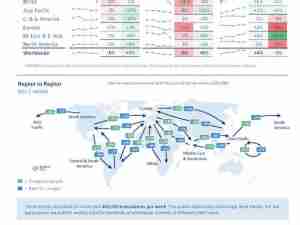GACAG calls for EU emissions deal
posted by AJOT | Mar 26 2014 at 04:59 PM | Air Cargo
The Global Air Cargo Advisory Group (GACAG) welcomes the provisional agreement reached between the European Parliament, EU Council and European Commission (EC) on the place of aviation in the EU Emissions Trading Scheme (ETS).
Under the compromise text agreed by the EU’s institutions, flights to and from EU airports will be excluded from the ETS until 2016, maintaining the current “stop-the-clock” regime.
The new EU arrangement therefore respects the 2013 agreement reached at ICAO, allowing ICAO time to develop an aligned global measure in time for its next Assembly in 2016. However, on 19 March the European Parliament Environment Committee rejected this provisional agreement.
GACAG regrets this decision and calls on the European Parliament, in its upcoming vote on the measure, to approve the compromise.
The 2013 ICAO Agreement calls for the mutual consent of all parties affected by any national/regional measures.
The EC’s original proposal to include the emissions of international flights within EU airspace was thus not in line with the goodwill exhibited by all ICAO members.
GACAG strongly welcomes the change in approach from the EU institutions that have agreed to the new compromise text.
As the text must still be voted on by the whole European Parliament at plenary, GACAG calls on the Parliament to overturn the Environment Committee vote and accept the compromise and ensure its rapid adoption.
Failure to adopt the compromise would mean the original ETS legislation coming back into force, thus including the entirety of flights to and from the EU within the scheme. This would be perceived as a move backwards and would divert resources from the work carried out at ICAO towards a global measure.
Aviation is a global industry, and global solutions are needed on the issue of emissions. A piecemeal approach to regulation, involving unilateral regional measures, would only increase the administrative and financial burden on the industry.
The air cargo sector maintains high-value, time-critical global trade flows, which would be hampered by a patchwork of regional regulations.
This GACAG statement follows ongoing engagement with EU policymakers on this issue, including high level contact with Commissioner Hedegaard and her advisors.
We welcome the numerous opportunities for dialogue offered by the EU institutions on this issue over the years, and the results which this has yielded, including the agreement now reached between the EU institutions.
We strongly endorse a continuation of this spirit of engagement, to allow the global aviation industry and regulators to collaborate in the development of a historic global measure on aviation emissions.
